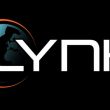USMSS seeks FCC guidance for dealing with non-compliant operators
An organization representing U.S. dealers and radio-service shops yesterday asked the FCC for clarification regarding the best way for dealers to handle requests from customers to add frequencies into radios that do not comply with the FCC’s narrowbanding mandate.
FCC narrowbanding rules mandate that LMR systems operating on spectrum below 512 MHz must have completed the transition from 25 kHz channel widths to 12.5 kHz-channel widths, unless the FCC granted a waiver extending the Jan. 1 deadline. In its letter to the FCC enforcement bureau, the USMSS said it has advised its members that radio technicians should not add 25 kHz-channel frequencies to customers’ radios, unless they have received an FCC waiver to operate on such a frequency.
But following the rules is costing some radio shops business, according to the letter.
“It is not uncommon for one of our members to advise a customer that it is prohibited from adding unlicensed frequencies to a system, including new wideband frequencies, only to have the customer secure programming assistance from an organization that chooses to ignore [the FCC mandate],” the letter states.
Informal communications with the FCC indicated that radio shops adding non-compliant 25 kHz-channel frequencies could face FCC penalties, if they do such work, USMSS Executive Director Bill Dow said during an interview with Urgent Communications. As a result, when asked to include non-compliant frequencies in a radio, dealers are being faced with an uncomfortable choice: risk FCC penalties or risk losing a customer to another radio-service that will add the frequencies requested by the customer.
“They’ll leave one of my members’ location and go down the street to someone who says, ‘I’ve got no problem with [adding the non-compliant frequencies],'” Dow said. “It puts us at a competitive disadvantage in the marketplace — we would lose that customer.
“Not everybody plays by the same rules. If they’re in this business, certainly there is a set of rules we should follow, but unfortunately, not everybody does.”
In the case of narrowbanding, the FCC has indicated that it will rely on interference complaints and reports from the field to initiate any enforcement actions. Theoretically, radio-service shops could report a customer that it knows has non-compliant frequencies in its radios, but taking such action likely will alienate the customer, Dow said.
“They’ll become an ex-customer [if a shop reports a customer],” he said. “That is the dilemma: Do I turn in the customer? It kind of puts us in an enforcement role, and that’s where we don’t want to be.”
While such situations have arisen because a radio operator has ignored the narrowbanding mandate and has not updated its LMR system, that only represents “a small percentage” of the customer requests, Dow said. A more common occurrence happens when a licensee wants to maintain interoperability with an entity that has not narrowbanded.
“For example, there are customers in public safety that have mutual-response [agreements] using marine channels and so forth,” he said. “It’s a big issue in spots of the country. In urban areas, it’s not as big; in rural areas, it’s quite large.”
Dow said he hopes the USMSS letter will generate a response from the FCC that will provide better guidance to radio-service shops.
“If there was a clearer path of enforcement that kind of levels the playing field in a competitive environment, that would be awesome,” he said. “I don’t know that I have the answer, but I certainly want clarity of the options for my membership.”















The example given is
The example given is bogus.
‘Marine’ channels are Part 87 and NOT subject to the narrowbanding order.
IF the customer has authorization IN WRITING from the licensee of the [still] wideband system, just put the Part 90 channels in as narrow. You added the requested frequency and stayed within the FCC mandate.
As the holder of an FCC
As the holder of an FCC license, my non-compliance with the rulling to make my customer happy puts me at risk. It seems that the FCC gave up alot of control with its deregulation in 1981 as one no longer needs a ticket to work on LMR equipment and with software defined radio, techs are a dime a dozen. All you need is a PC and bootleg copy of the radio software.